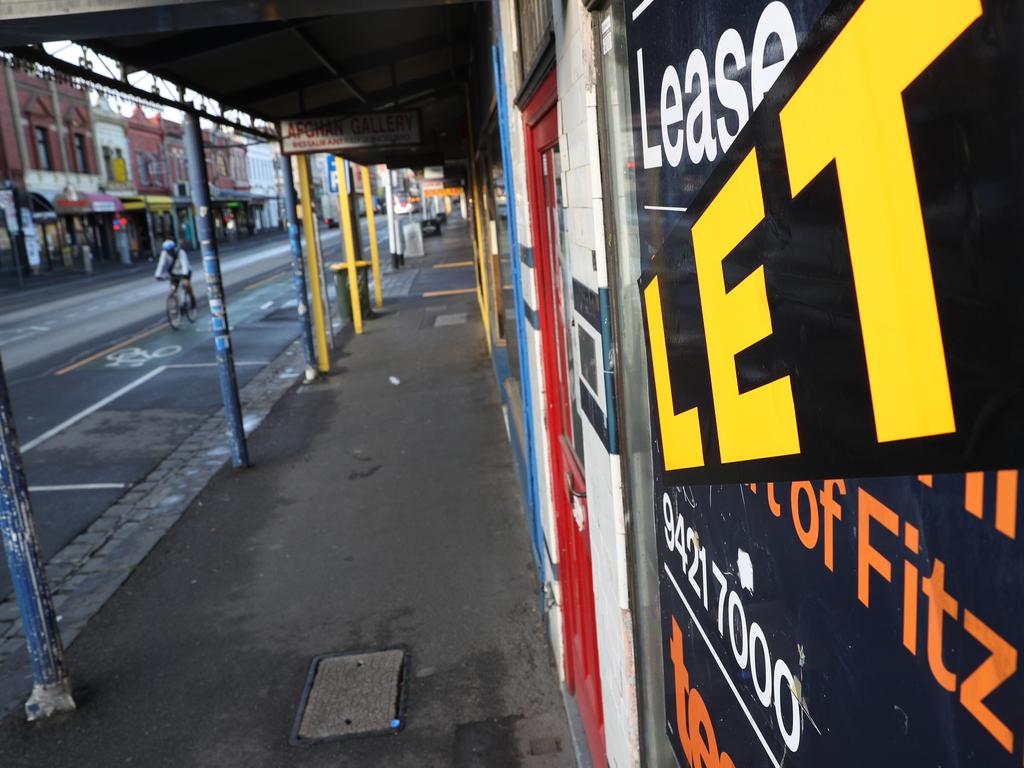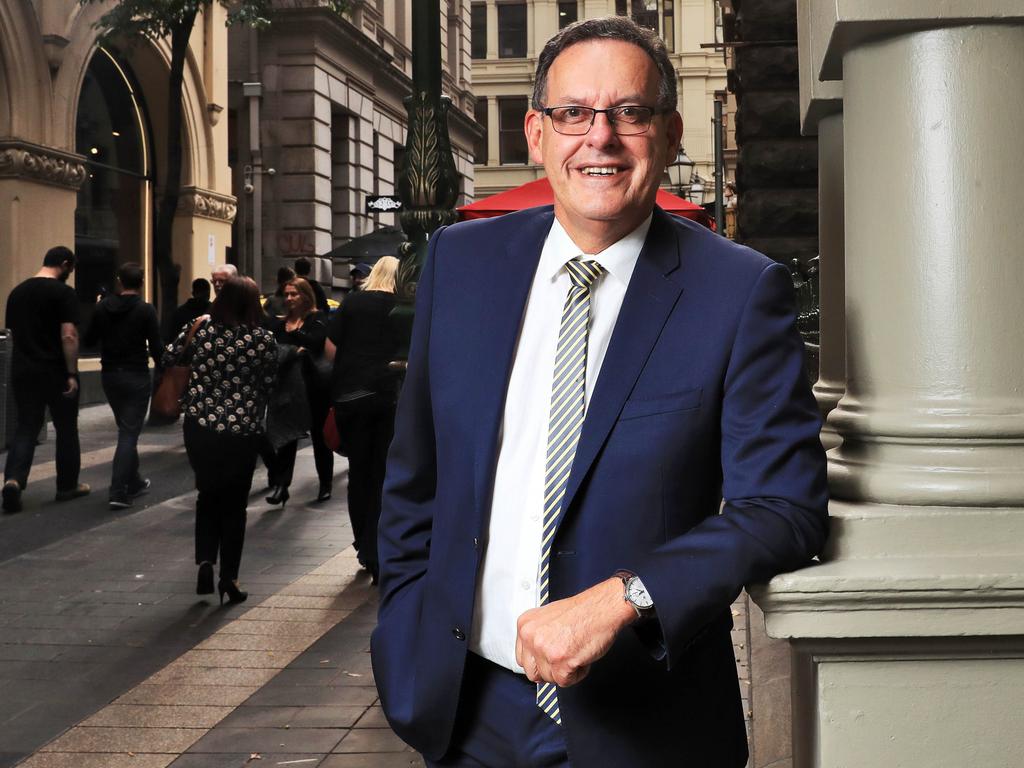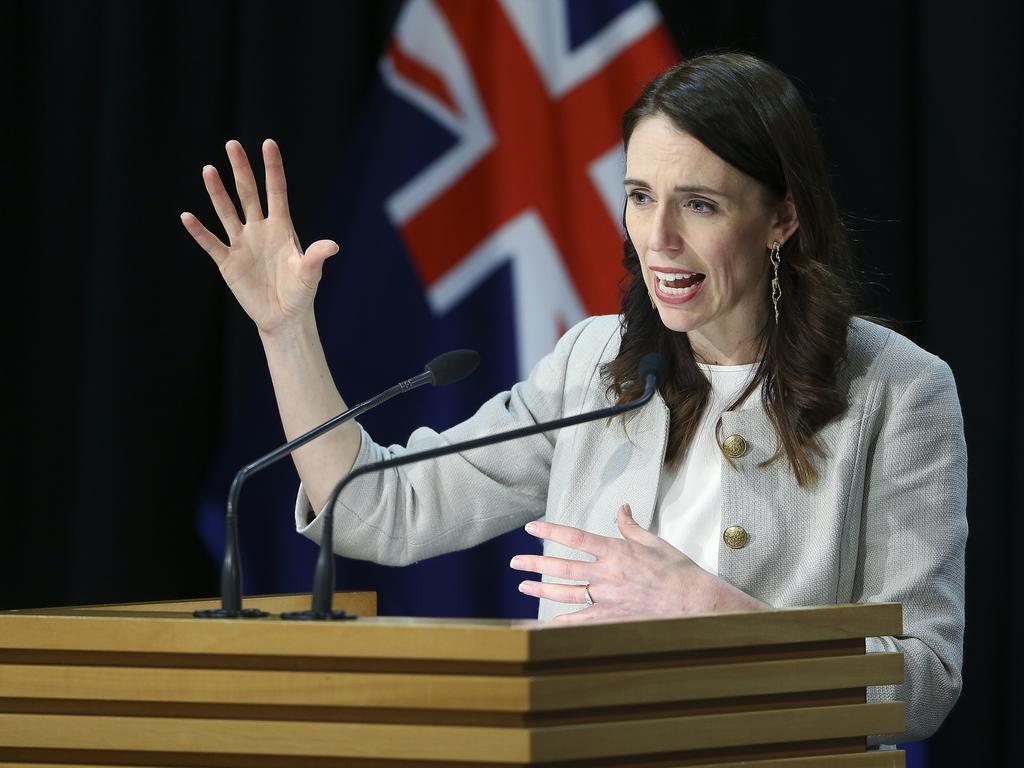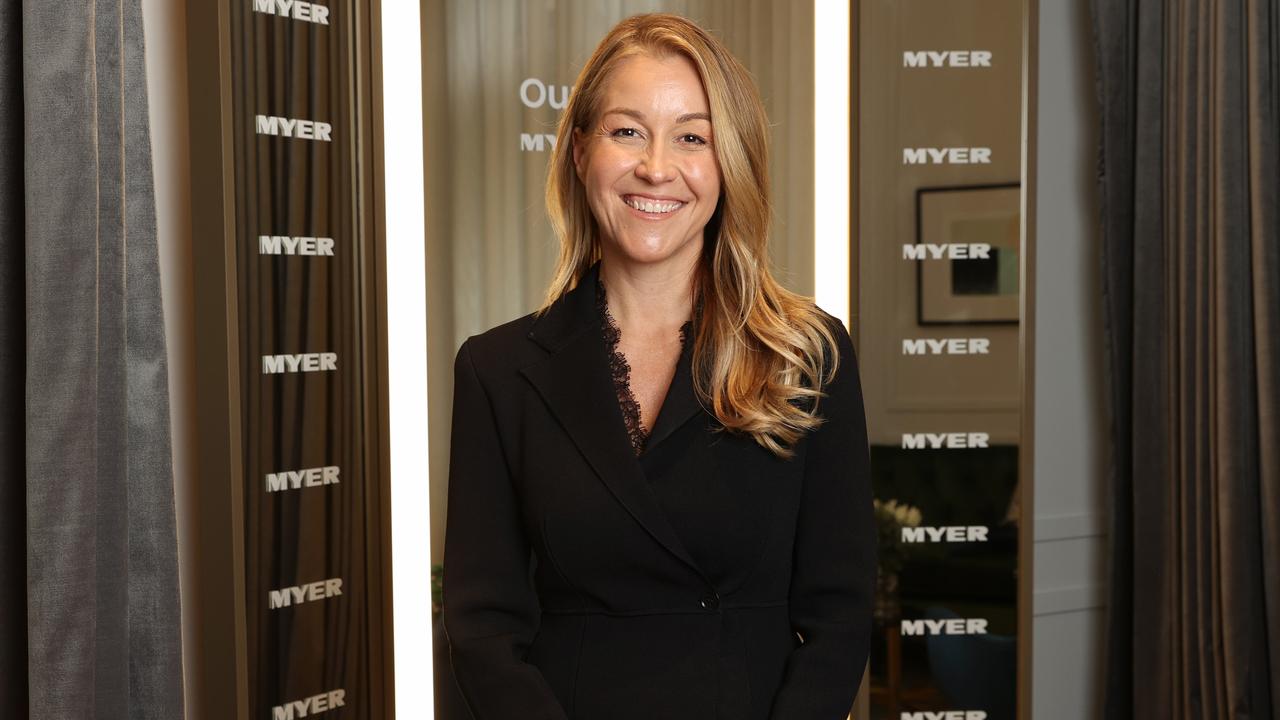Bosses brace for ‘third wave’ amid warnings of extended economic hit
CEOs say virus is here to stay until a vaccine is fully developed.
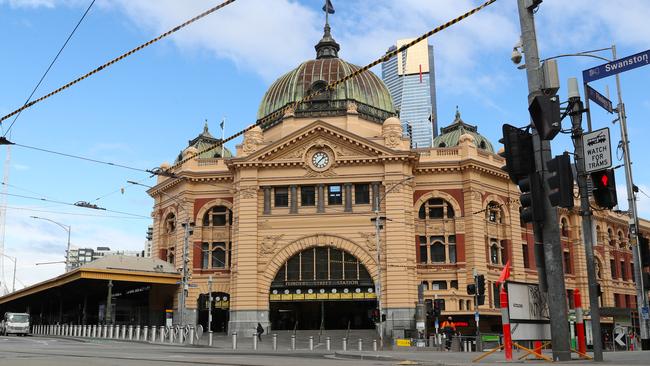
Australian business is preparing for a “third wave” of COVID-19 infections even as Victoria has seen some slowing of its second outbreak, with the state expected to remain a brake on the broader economy for the foreseeable future.
Chief executives at Telstra, Woodside Petroleum and AGL are bracing themselves for a long-lasting pandemic, drawing up plans for a third spike of infections and saying the virus is here to stay until a vaccine is fully developed.
The comments come as the number of unemployed Australians breached one million for the first time in July as a tide of jobseekers reconnecting with the workforce swamped another solid month of employment growth and sent the jobless rate edging up to 7.5 per cent.
The highly infectious virus has wreaked economic devastation around the globe, with Australia’s response to the COVID-19 crisis saddling the nation with a record $850bn gross debt bill and a combined budget blowout of almost $280bn by mid-next year, on the back of the government’s unprecedented response to firewall the economy and save millions of jobs.
Reserve Bank governor Philip Lowe is set to detail the impact of the virus on the economy when he fronts Canberra’s House of Representatives economics committee this morning by video-link.
Telstra chief executive, Melbourne-based Andy Penn, warned investors the pandemic was likely to wipe $600m off Telstra’s earnings in the next two years and he and his fellow executives were preparing for a third wave of infections.
This is despite Victoria enforcing the harshest lockdown Australia has ever seen as it battles its second spike of cases.
“We’re all very concerned obviously about the pandemic, and how it will continue to impact us all, and what second and third waves look like,” Mr Penn said. “I’m no expert by any stretch of the imagination on that, and I want to acknowledge that our political and other leaders are responding decisively as best they can. We’re all doing everything we can.”
Mr Penn said a lack of demand for international roaming services alone would cost the telco $200m in revenue for the 2021 financial year, while the health crisis could spark further job cuts for the telco.
Telstra chief financial officer Vicki Brady said the telco was looking to slash costs by $400m in financial 2021 and delay planned job cuts until early in the next calendar year.
“This target includes the impact of our decision to delay T22 productivity job reduction announcements to February 2021 as part of our COVID response. We do anticipate some role reductions prior to this, for example where projects end or work is no longer required.”
The latest labour data from the Australian Bureau of Statistics showed a further 114,700 Australians found employment, following a gain of 252,000 in June as the economy reopened over the two months. But the jobless rate drifted higher to 7.5 per cent from 7.4 per cent in June, the seasonally adjusted figures showed.
That was the highest rate since the late 1990s, but still well below the 11.2 per cent peak experienced during the recession earlier in that decade.
Woodside Petroleum chief executive Peter Coleman said coronavirus was not going away and warned the world would have to live with the virus until a vaccine was not only developed but produced at mass scale.
“Vaccines typically from discovery through to being manufactured take 18 months once you decide what you want the vaccine for and that‘s very quick. Then you’ve got to deploy it at scale globally. So I think COVID-19 is something the world is going to have to learn to deal with for the foreseeable future,” Mr Coleman said, adding the current lofty highs of the ASX were not reflecting the broader economy.
“The sharemarket is very forward-looking and doesn’t affect the economy as it is today. It always tries to look forward so you’re seeing in general investors are seeing improvement over time even though there’s some difficulty now.”
Mr Coleman said state and federal governments must balance opening up the economy while protecting the most vulnerable members of the community, with some of the restrictions in place to limit the virus’s spread “clearly unsustainable”. Australia’s death toll surged above 300 this week, with aged-care residents making up the bulk of the deaths after the virus infected scores of nursing homes across Melbourne.
Just deal with it
Aged-care providers, including listed group Estia, have been served compliance notices from the federal regulator over the nursing home outbreaks.
“A view that has been proffered that the elderly will just need to deal with it. I find that totally unacceptable and abhorrent,” Mr Coleman said.
“We must protect our vulnerable no matter what age they are, no matter what their socioeconomic situation is. But equally we also need to recognise that society must continue to move forward and at the moment some of the restrictions that have been put in place and some of the target levels are clearly unsustainable and are very short-term in nature.
“The government needs to get their mind around how they manage through that and open the economy up while protecting the vulnerable. I think both can be done. It does bring more exposure but both can be done and I think society will acknowledge and accept that.“
AGL Energy shocked investors, cutting its 2021 profit forecasts by nearly a third as it braces for a pick-up in bad debts along with lower electricity prices.
Chief executive Brett Redman said the downturn had accelerated much quicker than he thought six months ago and he expected a $40m bad debt charge from customers unable to pay power bills.
“What surprised the market is what was loosely being forecast as consensus for financial year 2022 has now arrived much quicker in financial 2021, and that’s largely because of COVID accelerating the change that’s happened in our market,” Mr Redman said.
“The speed of change has surprised. For us what we found was compared to six months ago, things have moved much more rapidly. The fall in gas and electricity prices has happened a lot more rapidly than we previously thought.”
Market confidence had also been dented as investors grapple with the health crisis running for much longer, Mr Redman said.
“The difficulty is that COVID is going to weigh on the market both in a physical sense in weighing on demand, but also in a confidence sense.
“One of the biggest reasons electricity prices moved is as much about confidence as it has been anything physical. So while COVID weighs on the physical and the psyche of the market, we’ll see that affect prices, which makes it harder to predict the pace of change going forward.”
Earlier this week Commonwealth Bank chief executive Matt Comyn told The Australian the economy would need substantial ongoing stimulus across many sectors to deal with a prolonged spike in unemployment.
KPMG chairman Alison Kitchen said the whole business community was working hard to kick-start the economy in the wake of the COVID-19 shock and was focused on the upcoming October federal budget.
“We are very engaged with the BCA. The October budget we are all looking to for some ideas to stimulate the economy. But the situation is very fluid,’’ she said.
“If you look at how much of our economic activity is underpinned by consumer confidence, the second COVID-19 wave in Victoria has really knocked that. That is a conversation I am hearing, especially in the SME (small to mid-sized business) space.”
Ms Kitchen backed calls by the BCA for the government to immediately introduce investment allowances.

